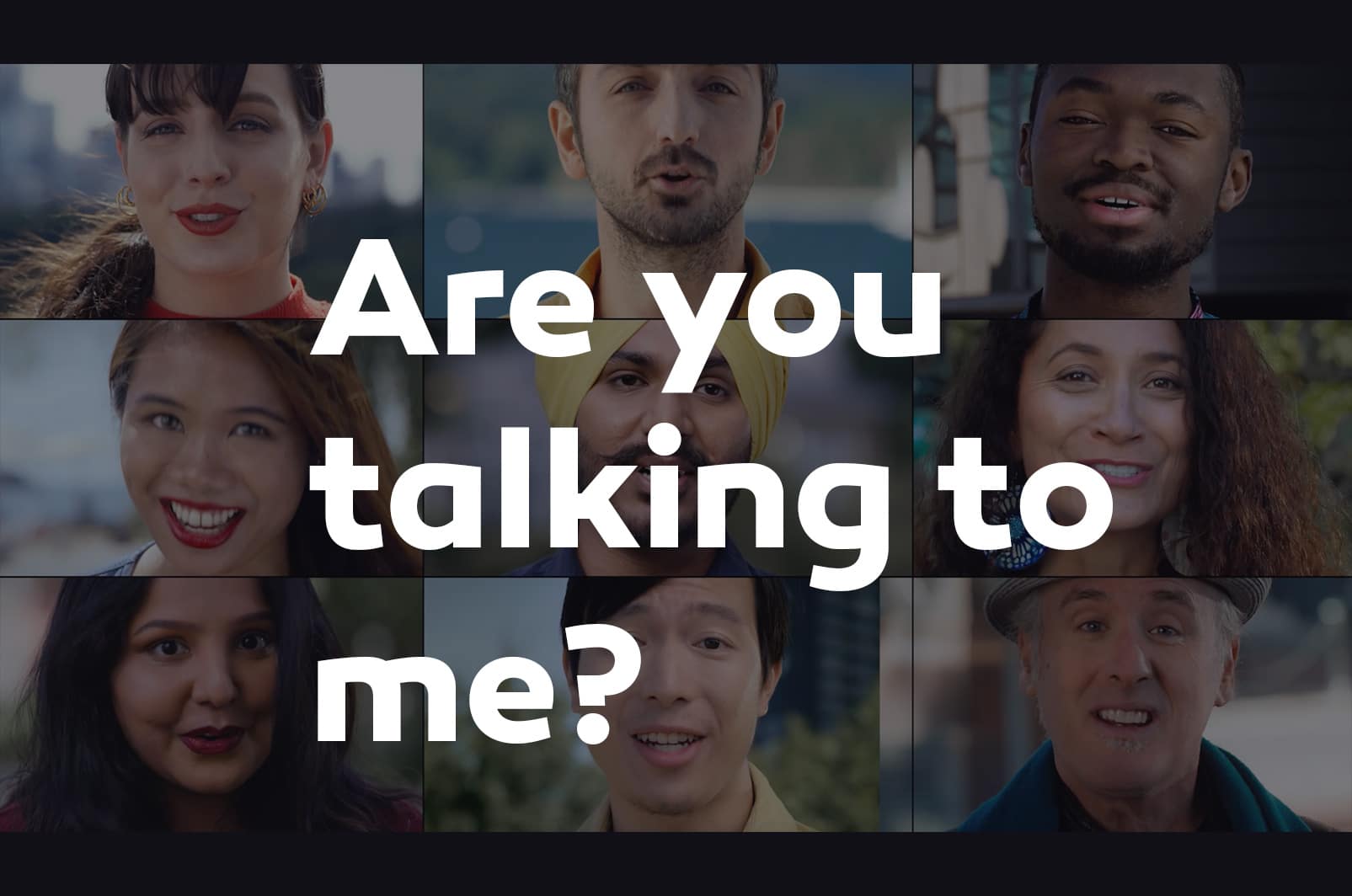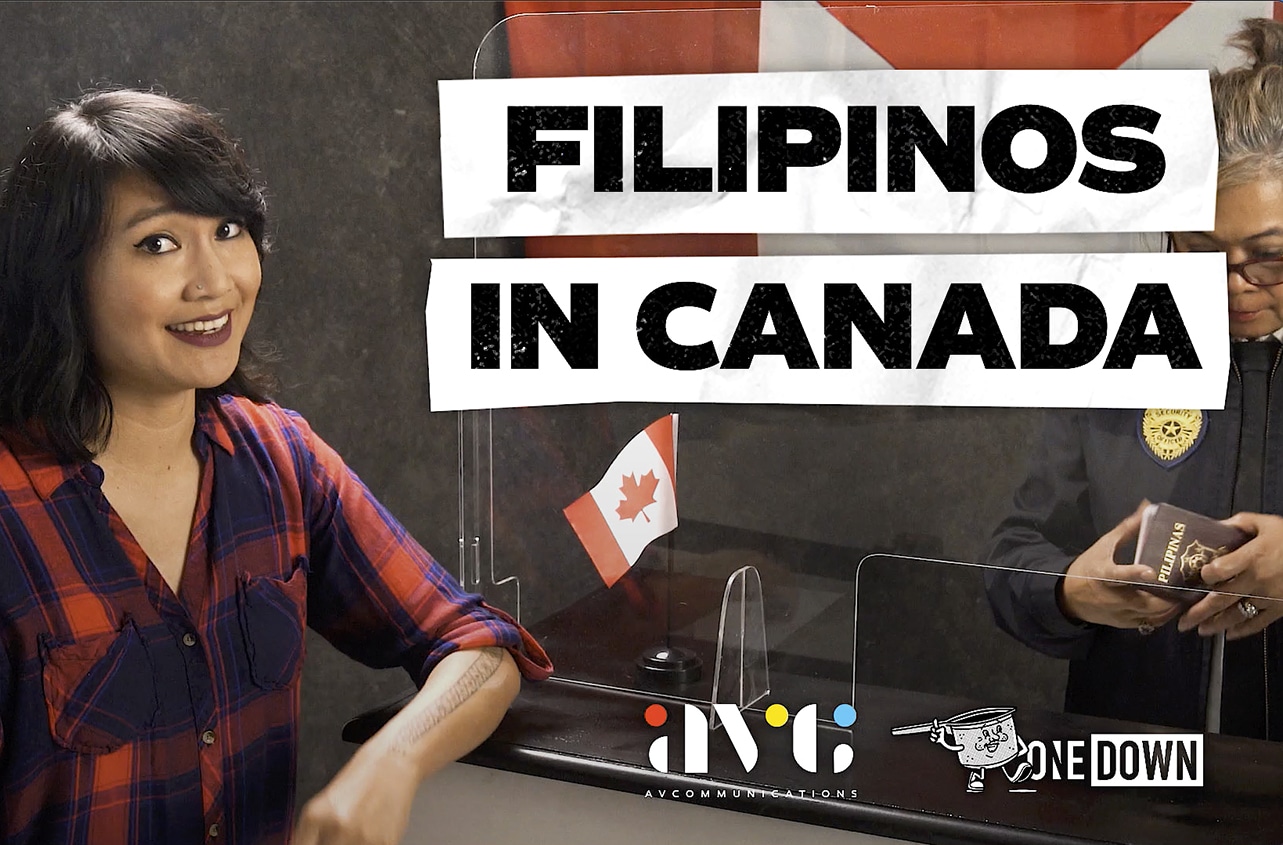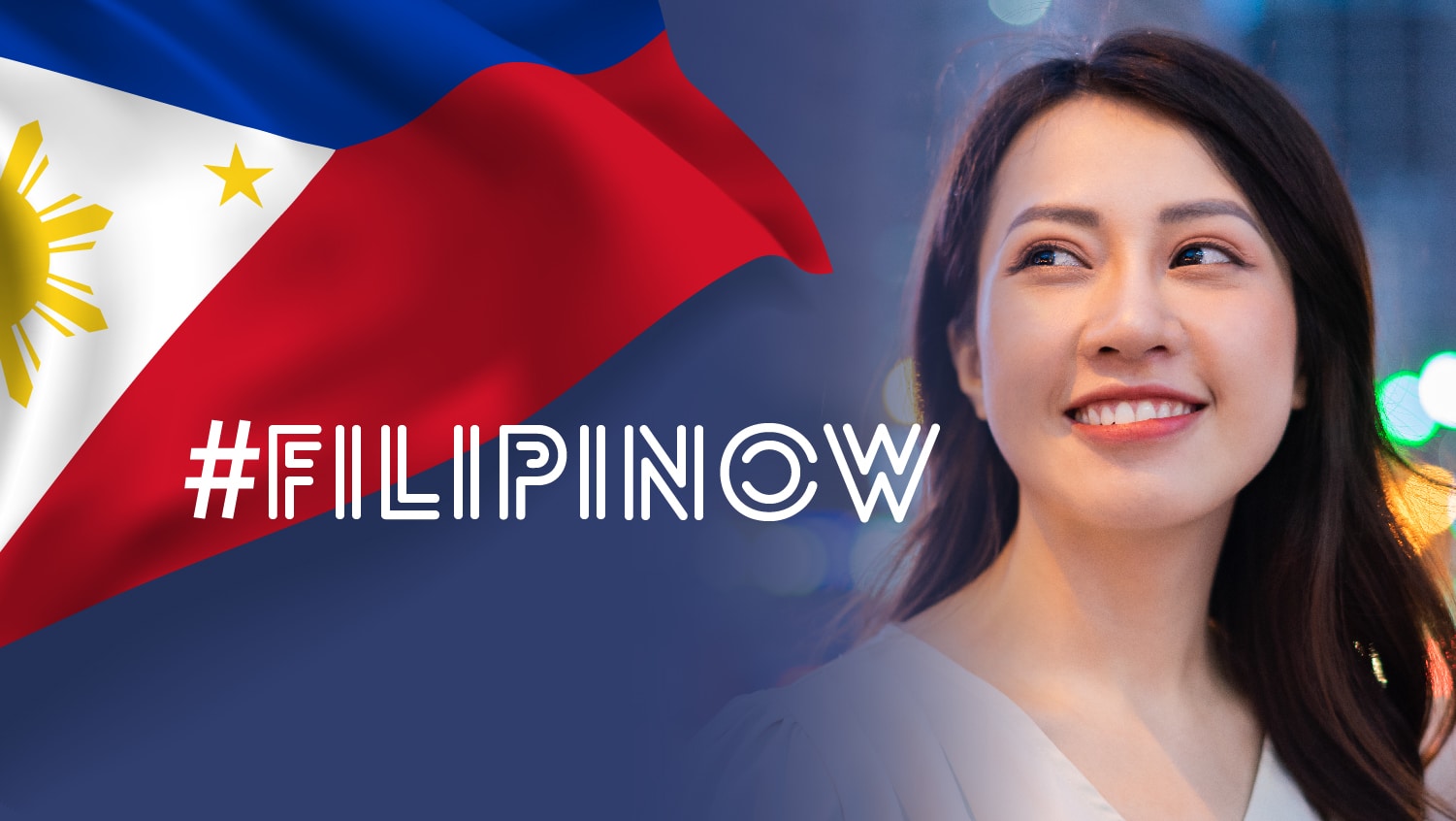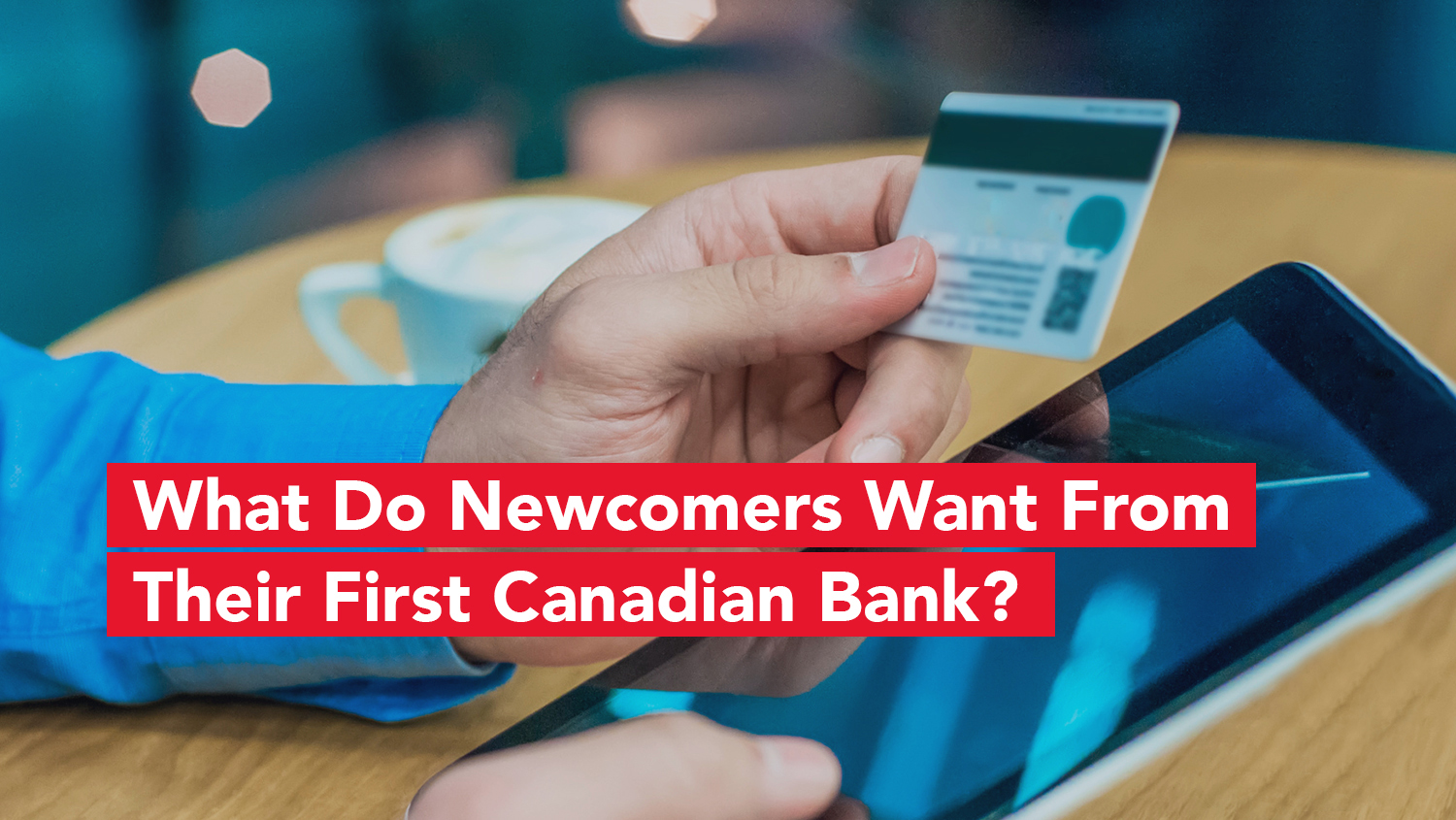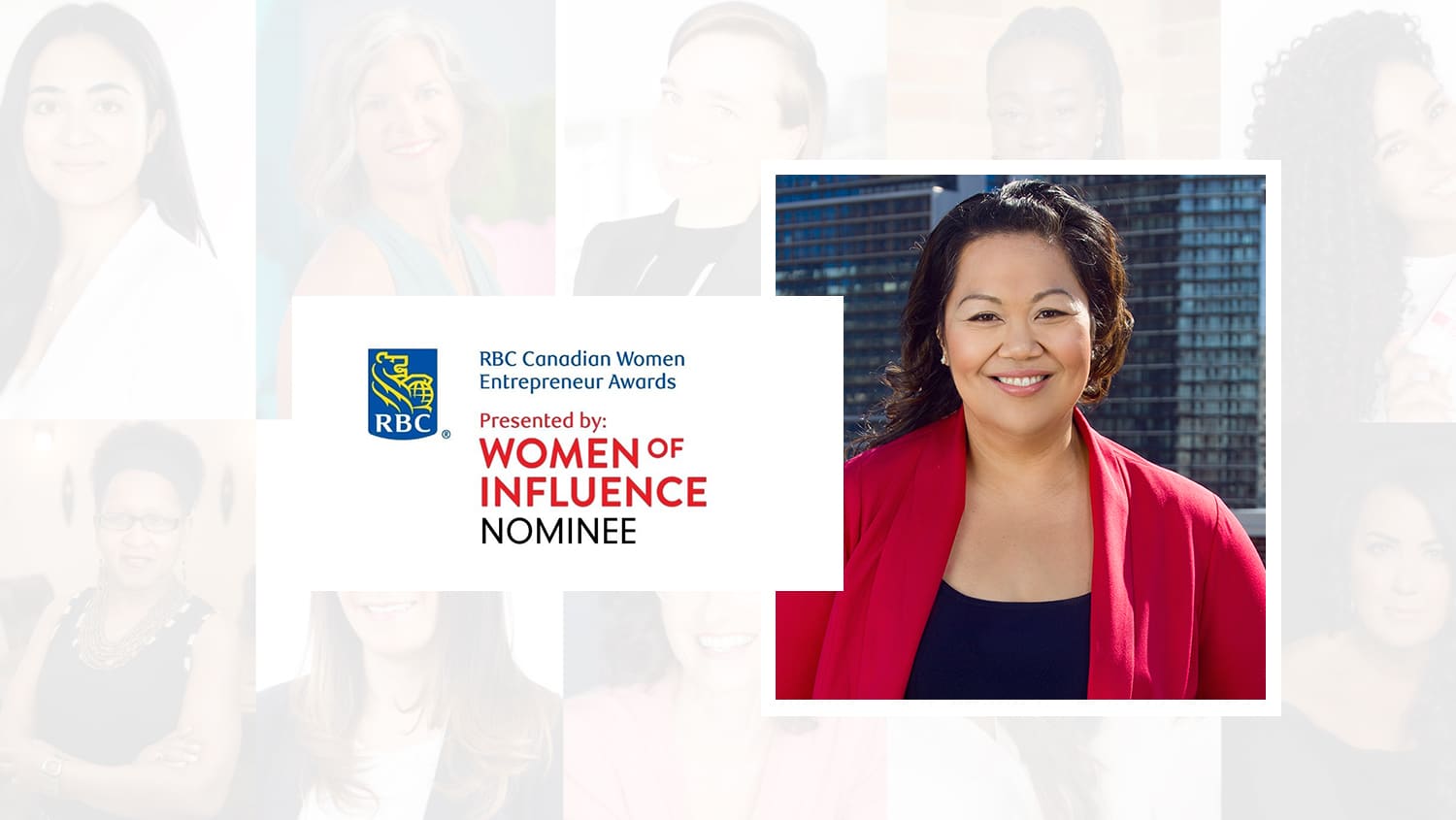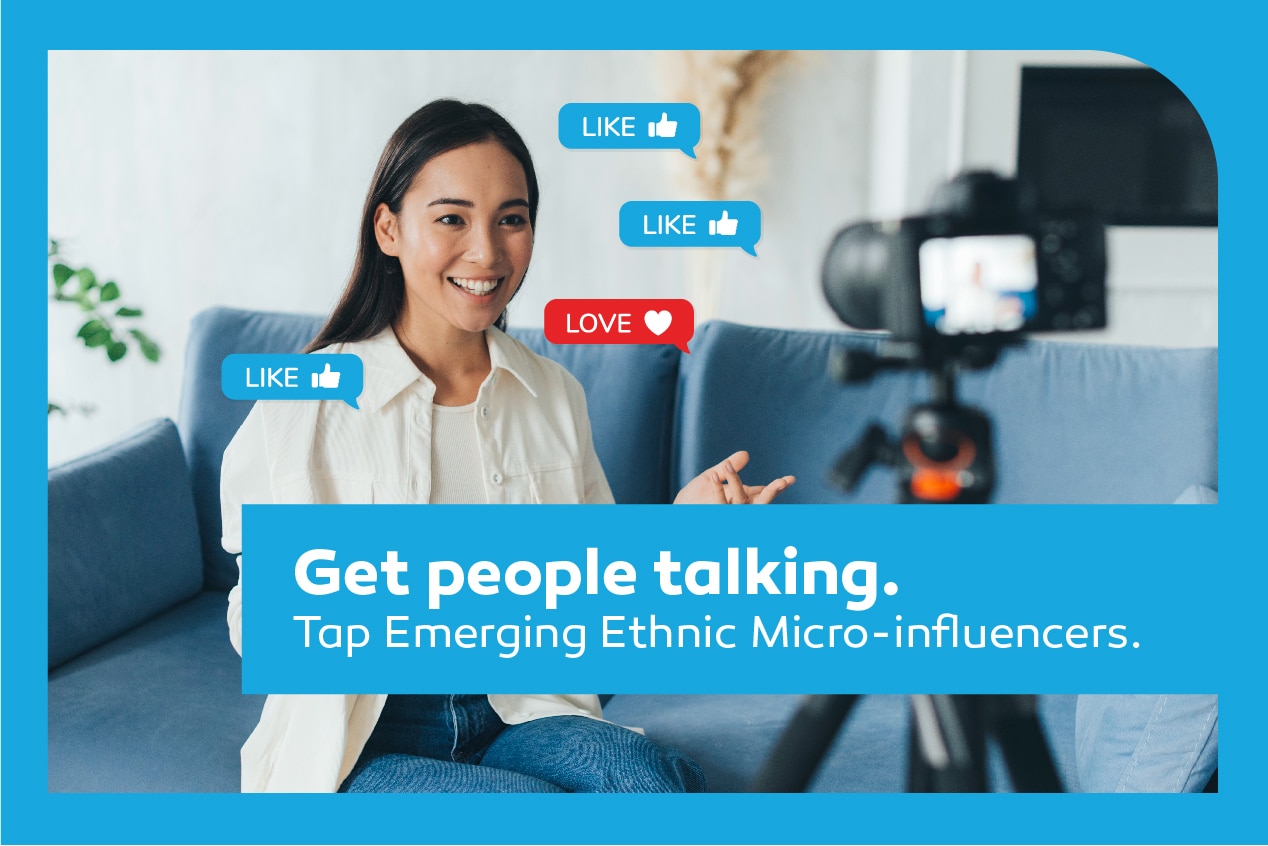Top Marketing Trends to Watch in 2022
Top Marketing Trends
to Watch in 2022
〰
If you’re looking to turn heads, make a positive difference, and stand out in 2022, then you need to tap into the marketing trends that will get you there. Take advantage of these trends and you will be most likely to get a head start next year, and who knows, you could very well get ahead of the competition, too!
Here are five (5) marketing trends that you need to know about for 2022:
1- Inclusive Marketing:
Consumers are expecting more DEI (Diversity, Equity, Inclusion) messages from brands that follow through on their promises. According to Deloitte 2022 Global Marketing Trends Report, 57% of consumers are more loyal to brands that show their commitments to social inequities. Another insight is that 90% of Gen-Z say they will consider switching to brands that offer products that benefit the society and brands that are genuine with holistic effort to practice DEI.
2- Influencer Marketing:
Influencer marketing will not only continue to be a trend, but also a common practice that most brands follow in the upcoming 2022. According to HubSpot, 57% of brands found influencer marketing effective. 46% of them plan to feature more influencers in their campaigns in 2022, and 11% say influencer marketing brings in the highest ROI among all the other marketing trends.
Why does influencer marketing work the best? It is mainly because influencers have amassed a group of followers that are interested in and engaged with their content. That does not mean that you must hire celebrity influencers. According to CMA, depending on your target audience, having a combination of macro and micro influencer is usually more effective than spending to hire celebrity influencers.
3- Video marketing:
Short-form content is the second most effective trend marketers are currently leveraging, according to HubSpot. The popularity of TikTok, Instagram Reels, and YouTube Shorts proves that short-form video is the future of content marketing.
Why should you consider short-form video content marketing? The HubSpot report suggests that 46% of the marketers that were interviewed consider the trend effective in terms of performance and engagement. A key factor to remember is that short-form videos get straight to the point and appeal to more audiences that are less patient nowadays.

4. Experiential Marketing:
Even though more brands and organizations have turned to virtual events, experiential marketing may make a comeback in 2022, according to Forbes. The immersive experience that embedded AR/VR platform is the hottest topic among marketers. As COVID restrictions are eased and more businesses reopen to the public, there will be more opportunities to tap into experiential marketing. Immersive and hybrid experiences that are marketing-oriented will allow brands to communicate their message in new ways and connect with new audiences on a deeper level.
5. VR/AR Marketing:
As mentioned in the previous trend, most marketers are either exploring or planning to explore with AR/VR in their marketing strategies. If AR and VR are new to you, HubSpot summarizes it well, “VR is viewing a computer-generated, lifelike scenario. AR is viewing the real world augmented with visual, haptic, olfactory or visual additions”.
AR marketing is the next big thing as it is more effective than print, online, and television advertisement. Customers can virtually “try on” products at home before purchasing them. AR can help customers to make better purchasing decisions as it gives them a sense of what the products would look like in real life.
If you want to stay ahead, then you should incorporate these five trends into your marketing mix for the next year. The common theme of these trends is to embrace new technologies and changes in society and customer preferences. As Greek philosopher Heraclitus once said, “Change is the only constant in life.” So why not take advantage of the inevitable changes early on for the benefit of your brand or business?
“Are You Talking to Me?” AVC Challenges Brands to Rethink DEI in Marketing
“Are You Talking to Me?”AVC Challenges Brands to Rethink DEI in Marketing
〰
“Are you talking to me?” This powerful question of reflection is asked by ethnic audiences in a bold new video by AV Communications (AVC) that’s drawing attention to why it’s important for brands to implement diversity and inclusion in their marketing.
In the 30-second video, AVC zones in on the various ethnic groups to command the significance of diversity, equity, and inclusion (DEI) in the marketing industry.
Filmed in Vancouver and Toronto, with a diverse cast including Canadians of Arab, Black, Chinese, Filipino, and Indian backgrounds, the video is a solid representation of diverse cultures in the country. In the video, different ethnicities share the same concern as to why aren’t brands speaking to them, ultimately showing that there is a lack of representation of ethnicities in their marketing efforts.
“We are living in a multicultural era, but are you talking to me?” This question is a wake-up call for brands that are still not focusing on diversity and inclusion despite calls for change in recent times. While there has been a shift across marketing in the country and while many brands have adjusted their focus, the question AVC wants marketers to contemplate is, are you really representing diverse audiences? Culture goes beyond the colour of your skin, the language you speak, and where you were born, and if you’re not catering to the core elements of that culture, are you really connecting?
By curating “Are you talking to me?”, AVC raises awareness of a longstanding issue in the marketing industry, which is the lack of DEI. The video is a bold move for AVC’s CEO, Joycelyn David to openly challenge the status quo and tackle the problem head on. It’s a deliberate and important step towards garnering attention to reshape the Canadian marketing industry by getting the powers that be to wake up and look at DEI from a fresh perspective.
The video is produced by AV Communications and Talentosa Productions collaboratively. It is one small step for AVC and it could be one giant leap for Canadian marketing industry. According to The Global DEI Census which was released on June 3rd, 2021, the pandemic has made it harder for many organizations to prioritize their diversity and inclusion efforts. The marketing industry is going backwards on diversity and inclusion and inequalities have been exacerbated by recent hardships. But there are also companies like AVC which are still moving forward in terms of their DEI approach. The video is one of several strategic steps that CEO Joycelyn has taken to fully integrate and grow DEI into AVC’s mission and values.
AVC’s focus is on advancing the interests of all multicultural and BIPOC audiences by making sure their stories are represented and heard. In tandem with that, AVC amplifies the voices of diverse communities by creating work that not only speaks their language but reflects their culture and celebrates their diversity in every single way.
Breaking the Tabo: Canada Edition
AVC is Breaking the Tabo!
this Filipino Heritage Month
〰
What comes to your mind when you see a Filipino-Canadian?
Nurse? Personal Support Worker? Nanny?
Yes, it is our pride and joy to serve as healthcare workers,
but we’re more than that. So much more.
As we end the month-long celebration of Filipino Heritage Month, AV Communications and One Down Media are breaking the tabo (er taboo) today.
Join us as we present the accomplishments of Filipino-Canadians from the true north. And why 1 million Filipinos in Canada need to be visible and represented in mainstream society. Not yesterday, but #Filipinow!
#FILIPINOW brings Filipino stories to light from every corner of the world
#FILIPINOW
brings Filipino stories to light from every corner of the world
〰
June is Filipino Heritage Month. It seemed like the right time for Filipino-Canadians Joycelyn David and Argentina Beltran to join forces and rally some 12 million Filipinos living overseas to celebrate their invaluable contributions to the countries they now call their second home.
#FILIPINOW is a first-of-a-kind initiative spearheaded by Joycelyn and Argentina. The campaign is calling on the Filipino diaspora to tell their stories out loud throughout June.
“We want to instill a sense of belonging and solidarity among Filipinos,” says Joycelyn, CEO and owner of leading Toronto-based multicultural agency AV Communications. “We want to elevate the Filipino community and importantly tell their stories through their own words.”
Backed by prominent Filipino influencers and media community advocates across North America, #FILIPINOW stemmed from Joycelyn and Argentina’s shared desire to connect with Filipinos of all backgrounds and generations worldwide.
The campaign hashtag #FILIPINOW combines a sense of urgency that “now” is the right time to talk about the impact of the community beyond the healthcare industry. Through this campaign, the duo aims to dispel stereotypical notions of who Filipinos are. Filipinos are not just proud healthcare frontliners, they are social drivers, innovators, and yes, even heroes.
Through #FILIPINOW, Filipino-Canadian entrepreneur Argentina is on a mission to showcase the Filipino’s brand of leadership across various industries and professions. “My name might be Argentina but I am a proud Filipina. To my Filipino brothers and sisters, I encourage you to keep showing your resilience, your knack for innovation, and keep building our legacy across the world,” she says.
Starting June 1, Filipino Canadians who want to participate in the campaign can simply:
• Post how proud you are of being a Filipino/a/x.
• Tag a Filipino/a/x who inspires them.
• Share a photo of that favourite Filipino/a/x.
• Use hashtag #FILIPINOW
Now is the right time to show the world how proud you are of being Filipino. As Argentina said, “Filipinos are here. We matter and we are visible.” If you want to know more about the #FILIPINOW campaign, watch the video below or reach out to your kababayan Joycelyn David.
AVC and TFC Reveals Why Filipino Canadian Audiences Is an Unexplored ‘Goldmine’
AVC and TFC Reveals Why Filipino Canadian Audiences Is an Unexplored ‘Goldmine’
〰
AV Communications (AVC) and The Filipino Channel (TFC), the 24-hour global subscription television network of ABS-CBN (the Philippines’ largest entertainment and broadcasting company), reveal why Filipino Canadian consumers are the next ‘goldmine’ market Canadian brands should add to their diverse audience portfolio.
Close to 1M Filipino Canadians are now living in Canada. Before the pandemic, the Philippines is the number one source of immigrants in the country and is the third-largest Asian Canadian group after the Chinese and Indian communities. This growing number alone is enough reason to finally put a spotlight on the ethno-cultural group.

AVC and TFC took the lead by organizing Filipi-NOW, the first webinar in North America that provided marketers an intimate look at Philippine Canadian audiences, insights, and media.
During the hour-long session, AVC CEO Joycelyn David together with Raymond Olano, Head of Partner Marketing; Rosary Escano, Regional Marketing Head; and Abigail Katigbak, Partner Marketing Specialist at ABS-CBN Global elaborated on what exactly makes the Filipino consumer tick.
“The Filipino market is very unique. We’re not homogenous. There’s first-generation and second-generation Filipinos. Not all Filipinos speak the same language. There’s a lot of dialects. And so, when we work with brands and clients, we like to help provide deeper segmentation for them in terms of how best to align their brand to the personas of the audience,” says David.
Filipinos come to Canada from different walks of life. 77% are first-generation immigrants composed of family migrants, international students, and temporary foreign workers who are building their careers in the hospitality, healthcare, and trade sectors. Their migration journeys may be different from each other, but they’re all bound by a strong connection to the motherland.
TFC has been instrumental in keeping that connection alive for over 25 years, having been one of the world’s largest creators and distributors of Filipino content. “Through TFC, ABS-CBN Global brings superior Filipino content in the form of news and information, dramas, variety shows, and movies. Content that are widely enjoyed and consumed by the Filipino market,” says Olano.
Intending to connect the Filipino diaspora to their roots, TFC continues to up its game by offering exceptional viewing experiences delivered through linear viewing on cable and satellite and online streaming through OTT platforms such as I Want TFC and IPTV. Through TFC, brands can easily reach Filipinos no matter where they are in the world.
Beyond this massive reach, TFC’s brand of news and entertainment is top-notch. Olano adds, “Based on the March results of Comscore, which as you know is the TV ratings and analytics audit company in the US, TFC shows have placed in 9 of the top 10 most-watched Asian content in the US. While this is US data, we can assume that the viewing behavior of Filipino Canadians are not far off.”
More than Filipino Canadians being a goldmine for market growth, David also reiterated the importance of BIPOC representation to which Filipino Canadians are an integral part.
“In an age of representation and where representation matters, where we’re trying to dispel all of these nasty things out there about Asian hate that is happening unfortunately in the world. Representation and putting your business dollars into supporting and representing is so important. And I think for any business that wants to live by ‘we embrace diversity and inclusion,’ then they must be embracing that through the representation of talent: behind the camera, in front of the camera, in your supplier choices, in your media choices.”
And for marketers and brands who sincerely want to champion BIPOC voices, David encourages them to take concrete action, “And I’ve said it to many clients and I’ll say it again, the visible minority population in Canada is 20 percent. So, 20 percent of your marketing dollars should be put towards multicultural audiences. If it’s not there, get it there.”
If you would like to know more about Filipino Canadian audiences, start by watching the full webinar here or drop Joycelyn a line and say “Mabuhay!”
ETHNIHUB Study Says Newcomers Turn to Family for Financial Advice, Not Experts
ETHNIHUBTM Study Says Newcomers Turn to Family for Financial Advice, Not Experts
〰
In a recent study by ETHNIHUBTM, the diverse audience intelligence platform, only 29% of newcomers seek the help of a professional financial adviser. And the reason why may be closely tied to culture.
The majority of new Canadians emigrate from China, India, and the Philippines. These are the three largest ethno-cultural groups in Canada. And they come from collectivist societies where people prioritize the interest of the group and not of the individual.

According to Hofstede Insights’ 6-D Model that provides an overview of the deep drivers of a country’s culture in comparison with other world cultures, China scored 20 and the Philippines 32 in INDIVIDUALISM. This index determines the degree of interdependence a society maintains among its members. Meanwhile, India has earned an intermediate score of 48, the highest among the three countries, which means that it has both collectivist and individualistic traits.
In a collectivist culture, the family takes precedence over people outside of this close circle. Banking and financial experts fall outside of this sphere and are essentially strangers to newcomers. 39% of newcomers seek the advice of family and friends when it comes to their finances. A financial decision significantly impacts their day-to-day lives and would not be entrusted to a “stranger.”
Even though financial advisors are considered experts and essentially know better, newcomers would defer to elder family members for sound advice on money matters.
On Choosing Their First Canadian Bank
Given this culturally driven disposition, it does not come as a surprise that among the newcomers polled 48% choose their first bank based on their family’s recommendation. Also, most newcomers live with the family when they first arrive in the country. According to the same study, 42% live with their extended family in a multi-generational household.
Often, relatives who came before them offer critical support in the areas of health, wellness, education, and emotional well-being. And even financial support when newcomers are just starting and have yet to secure employment to earn a steady income. And so, the opinion of these trusted and close contacts is highly valued.
Family versus Financial Experts
The findings of this ETHNIHUBTM study should serve as a gentle reminder to banking and financial institutions that when dealing with newcomer customers, the approach is not always cold, straightforward, and business-like. Perhaps the best way they can woo this segment is to make newcomers realize that they can trust financial advisers and that they always have their best interests in mind.
Remember too that they would not only be speaking to a nuclear family. For newcomers, the mantra “all for one, one for all ” applies. Older parents, uncles, aunts, even cousins have an opinion on the financial journey of the whole household.
Each member matters and is well-esteemed. So be warm, go up close, and personal. After all, that’s how one treats family right?
If you want to get more information on ETHNIHUBTM or learn how to connect with multicultural audiences, contact us.
What Do Newcomers Want From Their First Canadian Bank?
What Do Newcomers Want From Their First Canadian Bank?
〰
In the next three years, Canada will welcome 1.2M immigrants from all over the world. The first thing on a newcomer’s checklist is to open an account with a Canadian bank. The sooner they start a relationship with the bank, the better. According to settlement organizations, opening a Canadian bank account should be done within the first two weeks of arrival. It’s necessary for managing money, building a credit history, and paying bills.
A recent study by ETHNIHUBTM, the diverse audience intelligence platform, shows us what newcomers want from their first Canadian bank.
Let’s dive in!

32% OF NEWCOMERS WANT ‘NO BANKING FEES’
17% wish for additional incentives
16% care about security and fraud protection
Newcomers are just starting to build their financial future in Canada. What they can save from not paying extra fees could be used for buying their basic needs. That’s why Canadian banks that offer a reprieve from paying bank fees are one of the things that newcomers seriously consider when choosing a bank.
39% SAYS ‘UNREASONABLE BANKING FEES’ TRIGGERED THEM TO SWITCH BANKS
22% Bad Customer Service
21% Complicated Banking Requirements
How they are treated by their banks and complex processes are factors that make newcomers think of going to another Canadian bank. But unreasonable banking fees are the deal breaker.
87% OF NEWCOMERS ARE SAVING MONEY
Only 13% do not set aside money for savings.
Did you know? 39% of newcomers that were polled say that they’ve become thriftier and budget-conscious when they moved to Canada. Lack of employment opportunities, the large expense of settling in that includes paying for a home, buying furniture, etc., and managing a household with extended family members living under one roof, affect the financial well-being of newcomers.
With limited income and slowly dwindling savings, it’s no surprise that newcomers are tightening their belts. But it’s also worth noting that they still make savings a priority.
3 MOST POPULAR BANKS AMONG NEWCOMERS
1 TD Bank (Toronto-Dominion Bank)
2 RBC (Royal Bank of Canada)
3 CIBC (Canadian Imperial Bank of Commerce)
Among the Big 5, TD Bank comes out on top as the bank preferred by newcomers.
RBC Canadian Women Entrepreneur Awards
Filipino Canadian Woman Nominated for RBC Canadian Women Entrepreneur Awards
〰
AV Communications (AVC) CEO Joycelyn David joins the ranks of visible minority women who are making their mark in Canada. A Filipino-Canadian, she has been recently nominated at the RBC Canadian Women Entrepreneur Awards. The prestigious national awards program celebrates the achievements of the most accomplished and impactful women in the country.
Over the last 29 years, the program has honoured over 190 women for demonstrating excellence across multiple sectors. And this year, David is making history by becoming one of only a handful of Filipino women who have landed a place in this coveted spotlight.
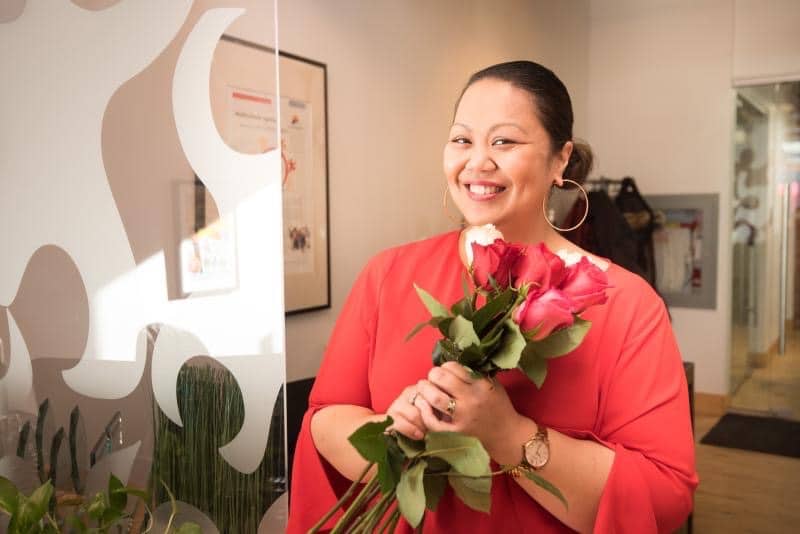
Born in Canada, Raised Filipino
Proud of her Filipino roots, David was the first of her family to be born in Canada after her parents emigrated from the Philippines in the 1970s. She grew up between Winnipeg and Edmonton, learning about her culture through the stories shared by her relatives. But learning the culture was not enough. David yearned to see another Filipino face right here in her home.
“I can still remember the first time I saw a Filipino in a TV commercial here in Canada,” David recalled. “It was a student recruitment spot, and they were inviting internationally trained students to enroll. I distinctly remember the ad and the feeling that ‘Ah… I can see myself, my sister, and my culture represented on TV. I was 25 years old at the time. Why has it taken so long for me to see myself reflected in the media this way?”
This question on her mind motivated David to champion the representation of black, indigenous, and people of colour (BIPOC) in mainstream media. Especially for the Filipino ethnic group that’s the third-largest in Canada. The Filipino population is expected to reach 1M by 2021, representing a 150% growth rate. They’re also the number one source of immigrants to Canada.
Rising to the Challenge
With the rise of the Black Lives Matter movement, and call for representation for BIPOC, consumers are demanding diversity and authenticity. Multiculturalism is mainstream. This has been David’s battle cry since taking the reins at AVC in 2019. Aside from keeping its Filipino heritage alive, David is taking the 17-year-old agency to greater heights.
Today, the award-winning multicultural agency has expanded its business globally. Growing international brands and reaching multicultural audiences south of the border (USA), even as far as the Philippines and Mexico.
AVC is also expanding through partnerships and research and development with the launch of its insights platform ETHNIHUBTM in October 2020. This project landed David a coveted spot in the Microsoft-backed Women in Cloud Accelerator.
Lead with Diversity. Invest in Multicultural.
David aims to push brands to revisit their brand and marketing campaigns and account for visible minorities in their communications. And though she has shattered Filipino stereotypes through her latest achievement, David knows her work has only just begun.
“It’s time for companies to walk the talk. If they truly embrace diversity and inclusion (D&I) it will be reflected in all aspects of their business, including marketing. When I began in this industry nearly 20 years ago, multicultural marketing budgets were often less than 5% of a campaign budget. It’s now 2021, and unfortunately, we haven’t moved the needle enough. I look forward to the day when a campaign brief LEADS with diversity and puts the right investment into multicultural audiences as well.”
If you would like to talk to Joycelyn about some of her current endeavors, future passion projects or how she can help you boost your brand in the multicultural space, drop her a message at linkedin.com/in/joycelyndavid/
2021 Multicultural Strategy Tip #5
2021 Multicultural Strategy Tip #5
〰
How do you tap the 10M multicultural market this year? In this blog series, we give you five strategies that you can use as a guide when you formulate your marketing plans for the multicultural audience in 2021.
Food brand? Say hello to the halal market.
THE FACTS: Canadian Muslim population, who consume halal food, is projected to reach 2.7M by 2030 (6.6 % of total population). The halal market size is over 1B in Canada and is growing at a rapid rate of 10% over the last few years.
KFC, Popeyes, Mary Browns, Nando’s and many more mainstream brands have added halal options to their menus to increase their market share.
Loblaws and Maple Leaf Foods have their own halal product range (Sufra and Mina respectively) to meet the growing demand of halal audience.
Walmart and FreshCo have dedicated “halal” food sections at various locations.
Why do you need to consider this audience for your brand?
OUR TAKE: Halal product awareness and consumption is increasing at a rapid pace and majority of consumers have the financial power to spend. According to the Canadian Halal Meat Market Study funded by the Alberta Agriculture, Food & Rural Development (AAFRD) and Farming For The Future Farm Demo Project (FFF), the average Canadian Muslim household spends $1,623 on halal meat per year and consumes 5.6 meat servings per day. This trend will only grow from here so why wait?
To learn more about our multicultural strategies contact Shaharyar Irfan and Gideon Lin.
2021 Multicultural Strategy Tip #4
2021 Multicultural Strategy Tip #4
〰
How do you tap the 10M multicultural market this year? In this blog series, we give you five strategies that you can use as a guide when you formulate your marketing plans for the multicultural audience in 2021.
Get people talking. Tap Emerging Ethnic Micro-influencers.
THE FACTS: Word of mouth is stronger among immigrants versus the mainstream audience.
50% of Chinese consumers use social platforms to gain product information while 40% do impulsive buying online after being influenced by KOLs.
Ethnic groups such as South Asians and Filipinos are hugely influenced by the opinions of trusted people in their community, especially when buying a high value item.
How can your brand be present in these online conversations?
OUR TAKE: Leverage the strong network of influencers to promote your brand among different ethnic audiences.
To learn more about our multicultural strategies, see tip #5 and contact Shaharyar Irfan and Gideon Lin.

